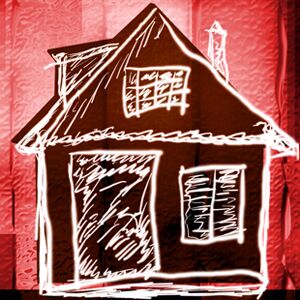
Biggest House-Price Drop in 35 Years
The latest news from the housing front seems to confirm that at least a temporary price peak is now in place.
In fact, if you have purchased a new home since September 2004, odds are it is now worth less than you originally paid for it.
According to the Commerce Department, the median price for newly constructed homes fell 9.7 percent this September from last September’s level—a drop of magnitude not seen since 1970, and the fourth-largest drop on record. Median home prices are now down 15.5 percent from their record high posted this past April (cnnMoney.com, October 26). At the same time, the volume of new home sales has also plunged 14 percent from last year’s totals, according to the U.S. Census Bureau.
The big danger, according to Jim Jubak, senior markets editor for msn Money, is that this housing slowdown might continue to build on its own momentum.
“It was surprising just how quickly the market seemed to turn,” says Mark Zandi, Economy.com’s chief economist. “It was like, boom, boom, bust. It was like, ‘What happened?’ The psychology in the market place unraveled very rapidly” (USA Today, October 26).
When home prices are soaring, nobody wants to wait to buy a home in fear that they will have to pay more for it later. And sellers don’t mind waiting for higher bids because they think they can get more money later. Thus, “price increases beget further price increases” (Morgan Stanley, August 25).
Conversely, however, when market temperaments change and people begin to anticipate lower future prices, the incentive to make a quick purchase disappears. “Bids are drying up. Many potential buyers are simply waiting for lower prices. The word is that ‘it pays to wait,’” says economic analyst Richard Russell.
Michael Shedlock of Mish’s Global Economic Trend Analysis agrees, calling this “A Procrastinator’s Market” and saying, “Prices have only one way to go and that is down.” Why buy a house today when you can buy it for less next month or maybe much less next year?
Even with the housing downturn in what could be its infancy, some analysts are already forecasting that home prices have hit bottom. “The worst is behind us as far as a market correction—this is likely the trough for sales” said David Lereah, the National Association of Realtors’ chief economist. “When consumers recognize that home sales are stabilizing, we’ll see the buyers who’ve been on the sidelines get back into the market” (Associated Press, October 25).
However, the exact sideline for buyers that Lereah is referring to is unclear. Homeownership is already at record levels. In the fourth quarter of 2005, the national homeownership rate was 69 percent, only 0.2 percent below the record set in 2004. Additionally, according to some estimates, 40 percent of houses purchased in 2005 were second homes or investments.
Moreover, over the past few years it has become much more commonplace to buy a house without a down payment. If prices continue to remain weak, the market could be flooded with people trying to get out of their mortgages with what little is left before prices weaken more. According to Shedlock, the market is already “flooded with inventory from those who now want to cash out.”
Perhaps the clearest indicator of the end of the housing bubble, from a contrarian point of view, is that people can now, along with pork bellies, soybeans and stocks, invest in a home-futures market. This past May, the Chicago Mercantile Exchange created a home-price-futures market that gives people and investors the ability to speculate on home prices across 10 major U.S. cities, including Boston, Miami, San Diego and Chicago, without actually purchasing any property (Newsweek,October 30).
This kind of speculator excitement—typified by a plethora of new and improved investment ideas like home-futures contracts, interest-only mortgages, negative amortization home loans, 50-year mortgages, widespread adjustable-rate mortgages and other products—is characteristic of the froth that usually surrounds bubble peaks—like that of the dot.com mania in 2000.
The noise of a deflating housing bubble is getting louder. For the U.S. economy, which has become so dependant on the many jobs surrounding home construction, real-estate and property financing sectors, this is certainly not a good economic development. If you haven’t started preparing for post-bubble economic trouble, now might be a good time.



